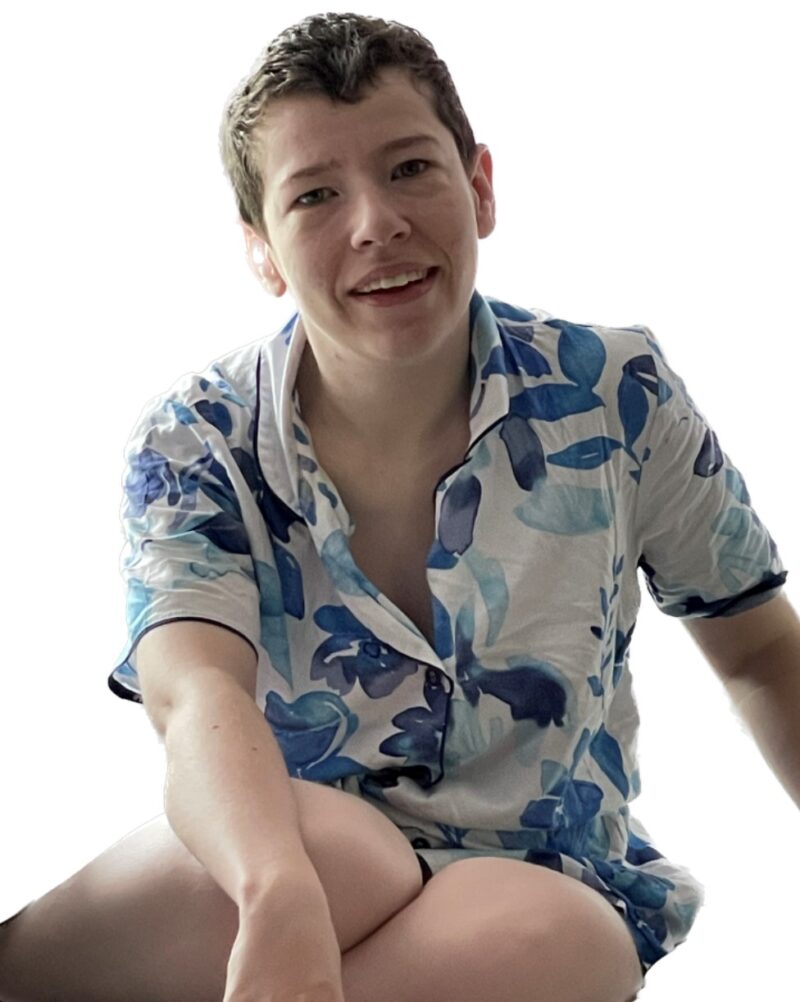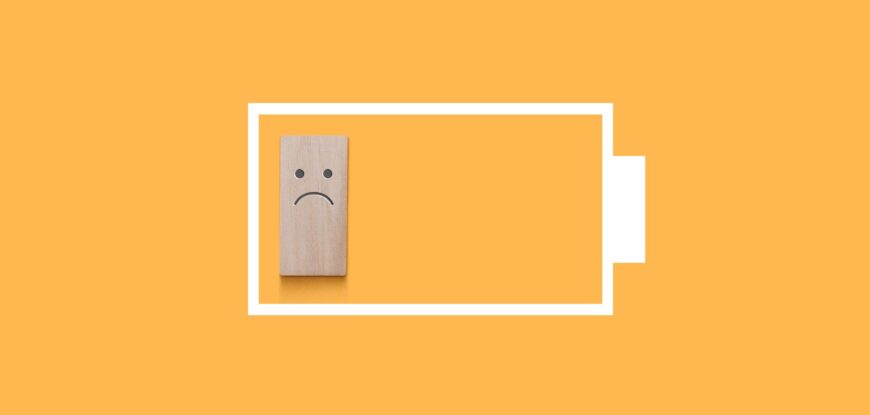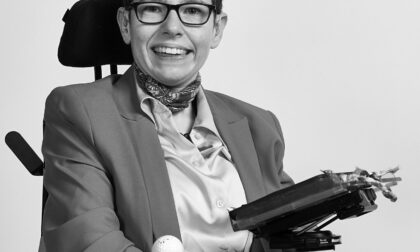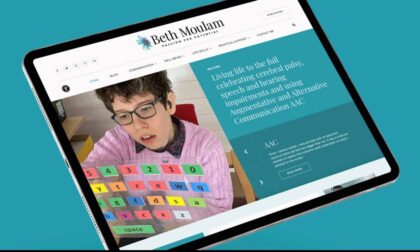I’ve read a few things recently about other people’s fatigue. At times I can see similarities to my own lack of energy, at other times I find little in common. We are all different, and so the solutions to dealing with our own fatigue will differ. More recently I’ve come to realise my constant tiredness is more than just physical fatigue.
I’ve been living with fatigue for as long as I can remember.
Sometimes at school, I wanted to sleep at my desk, after a full day in school I was ready to curl up in a ball as soon as I got home. (Or back to the boarding school bungalow). I remember when I was 4 refusing to get out of bed on Saturday mornings. Once I started school I was just exhausted and didn’t want to leave my room. In the last few months, this has become more manageable. For the first time, I no longer feel I am living with fatigue every minute of every day. All because I’ve discovered my state of being is more than just physical fatigue.
What fatigue means for me
My diagnosis is dystonic cerebral palsy, dysarthria and hearing impairment. As an adult, I now know all three play a part in my physical and mental well-being. Throughout my life, I’ve been told that this is normal for people with some types of cerebral palsy to experience ongoing tiredness. Even so, society expects us to get on and do what everyone else does, so I’ve just kept pushing myself forward. This usually means knowing I’m on the limit of my energy reserves, but then still pushing that little bit more. The result is as if something takes over my body, but I have no recollection of carrying on. Eventually, my body snaps shut, it’s as if someone has switched off the lights. I hit a wall and I’m unable to do anything.
The recommended actions
Over the years I’ve tried everything. Many of the things listed have brought small gains, but none have, even cumulatively, allowed me to function throughout a whole day and evening without rest. I recognise here that my experiences might not be the same for others, but I am excited to share more recent developments that have shown me my deep-seated tiredness is more than just physical fatigue.
Spoon theory
- Adopting spoon theory to limit energy use and improve my quality of life. By this, I mean accepting help to do everyday activities that sap my body of energy. My assistants support me to dress, wash, eating, and undertake the physical elements of study like typing. The result is I can conserve my physical energy for the things that are important to me.
- Adapting spoon theory for my speech to ensure I do not tire my voice. Again this means I am in control of my fatigue knowing when to use my communication resources even with people who know me. For more information take a look at AAC, spoons and speech fatigue
 Having good sleep routines
Having good sleep routines
Getting to bed at the same time daily and getting a full night’s rest. My sleep window is a minimum of 10 hours of sleep, meditation, and relaxation without fail each night. I’ve learned I can do with a shorter window on occasion if I plan to rest later. However, to do this constantly day in and day out means over time my body breaks down, and I have no reserves.
Avoiding stress
I’ve discovered avoiding stress is all about having strategies in place to manage situations as they arise. The more I understand my stressors, and the greater my knowledge and practice of diffusing these, the more I feel in control. You can read more about these at Mental & Emotional Well-being
Having good nutrition
Over time I’ve learned not just to eat well every day but the need for plentiful snacks to keep my energy levels stable. The good work of the TASS team at Leeds Beckett, when I was with Boccia England, has stood me in good stead for years. Good job I love Nutella and peanut butter! For me it is better to graze between meals on high-energy ‘good’ foods than eat big meals, constant topping up of calories works best.
Being well hydrated, always
I never realised how being thirsty can make us tired. Having had oro-motor surgery to reduce my dribbling drinking plenty is a must. Surprisingly the more I drink the less saliva I produce so the less I dribble. Without overdrinking, which can also bring issues, I make sure I always have a drink to hand, mainly squash with water.
Getting fresh air and exercise.
As silly as it sounds everyone knows fresh air and exercise make us sleep better, and when we sleep well we awake more refreshed. Frame running outdoors and some gym work indoors are my go-to exercises, you can read more here Physical Well-being. When all else fails a quick drive around the block in my chair with some focused deep breathing also makes me relax.
Understanding my fatigue triggers
I’ve learned the importance of adopting spoon theory accordingly e.g., planning my day and week to take account of what I know will happen. By planning everything I try not to take on too much, but life is always a juggle. I know what my optimum capacity is for study, what breaks I need, when I need to eat, and more.
I’m not as good at saying no sometimes as I could be. Partially because besides studying I enjoy supporting others who use AAC. Having a home office is definitely good as I go to my desk, work for short spurts, have the regular breaks I need, and leave my work ready for the next session. All this happens without travelling which in itself is tiring. You can see some of the challenges with ‘normal’ travel in my blog on reverse engineering.
Seeking professional help
Following the Tokyo Paralympics in 2021, I was so tired and after 6 months had not bounced back to ‘my normal’ self. Despite lots of rest and recovery, good food, sleep, pampering and doing everything I needed to get back on an even keel I was still waking each morning with no energy. I felt physically and mentally drained all the time. I was doing all the things I’d done before, and following Covid, I was studying even more at home than previously (a good thing). If anything I was becoming concerned if this was more than just physical fatigue.
NEW: Finding time to rest my mind
Eventually, I visited the GP due to persistent fatigue and migraines. I got a referral to an Occupational Therapist (OT). It took 9 months to see someone, and I was expecting there would be little they could tell me. Was I wrong!! I already knew about spoons and all the other things that were supposed to help me, so what more could they say? But as I love learning new things I approached the appointment with an open mind. That initial 60-minute session made the biggest change ever in my life.
First, we spent time talking about my life. This was a neuro-OT, so she understood about cerebral palsy, movement challenges and how I used my energy. People with my type of cerebral palsy use up to twice the energy as others just to sit still and do a mental task, and up to five times as much when physically active.
Second, the OT acknowledged all the great stuff I do already to promote good sleep from meditation every evening, to good bedtime routines.
Then the OT pointed out I was always on the go. When I chilled, I watched TV, listened to music, or did emails. Even if I had quiet time I was always thinking of the next project or activity. This meant my brain never had a quiet time to refresh and reset. For the first time ever someone was suggesting my constant exhaustion was more than just physical fatigue.
Recommendation for mental rest
The recommendation was that I should spend a few minutes, several times a day, clearing my mind, avoiding distractions and sit in absolute quiet. The best times would be natural breaks in tasks such as finishing a computer task, reading an academic paper, or a physical task. It would take practice but if I could do it then I would feel the benefit of a calm and refreshed mind.
Making it work for me
I was more than willing to give it a go. At once I could tell there was some benefit, however, I came across 4 unexpected challenges:
- Keeping my eyes open I was easily distracted, so I tried closing them, but with my Cerebral Palsy, they flickered open all the time. Solution: I bought a mind fold (a blindfold made of black foam which allows the wearer to have their eyes open but be in darkness). This immediately solved the keeping my eyes closed issue.
- My personal assistants hovered because of the short time frame, and they weren’t always quiet. If they went into the kitchen, they carried out jobs that created noise and were another distraction. Solution: We created times/events when I could be in silence, so if I was studying my Personal Assistant would leave the office and go make drinks or do a short task out of my hearing.
- Because my mind was so busy, I found distracting thoughts creeping into my mind, even during a 2–3-minute break, this meant I was not getting the intended rest. Solution: I enjoy meditating, consequently I changed the activity to always start with a 1-minute Headspace meditation to clear my mind, and then go straight into the 2-3 minutes silence. In total, each mind break is 5 minutes away from everything.
- My assistants were often ready to return before I was ready for them, thus interrupting my quiet processes. Solution: I use my on-call bell to let my team know I’m ready for them to return.
More than just physical fatigue
Ready to go I embarked on embracing all these small changes together. The result was at the end of the first full day I couldn’t stop talking at bedtime. Definitely a first! Now I know that this state has been more than just physical fatigue. My energy has always dipped whilst studying, however, I found things improved once I started with the silent sessions. I continued with the snacks I’ve always had and find now I re-start each new task feeling more physically and mentally energetic than before my meditation.
Taking a ‘medi-mo’
I’ve renamed the periods of quiet during the day ‘meditation moments’, or medi-mo’s for short. I do one when I finish breakfast, then 1 or 2 in the morning, one after lunch and another 1 or two in the afternoon. Once I finish my day, I have another one before dinner. In total, this takes 20 to 30 minutes from my waking day. I continue to meditate for 10 minutes before sleeping and 10 minutes when I wake up each morning. I see these breaks as little different to other people who stare into space or daydream for a short period. Or those who take the very good advice from the optician and have regular screen breaks. Effectively I’m just giving myself the breaks others take for granted.
I’ve also carved out other times for a medi-mo around whatever I’m doing. For instance, going to university for a 2-hour lecture is always tiring. Now I don’t have the radio on in the car, instead, I sit in silence. As I’m not the driver it’s a good chill-out session. Then for the return journey home, I do the same.
I’m not a slave to doing a meditation moment when I’m out of the house. External activities don’t always lend themselves to switching off for short periods of time. Instead, I know how to put myself in the best place before I start. I recognise when I’m done with the activity that I will need extra quiet time. A busy day or two out and about will probably be followed by a lie in the next morning and a quiet day with extra meditation moments.
A new way of life
Now, all things being equal, I go to bed a little less tired and sleep well. Depending on the day before I might be bouncing or a little zapped when I wake. For me this is revolutionary, it’s a big change from crashing every evening and waking tired.
I honestly wished that this sort of brain rest had been recognised as beneficial when I was at school. In fact, if I couple this with the things I’ve learned about hydration, nutrition and the benefits of being fed at school then life could have been very different. Most definitely we all need to understand being tired is more than just physical fatigue.
A word of caution to myself here. I’ve never had limitless energy and still don’t, but I don’t feel so tired by teatime that I just want to go to bed. I’m also able to focus better on my studies and find I’m more productive in each study session. Just as I have made progress I’ve had to learn to balance less fatigue with not taking on more to compensate. The skill is to learn to relish having a little more energy and not to take it for granted. Without a doubt, I now know having energy is more holistic than just addressing my physical rest and nutritional needs.
Back to mental and emotional wellbeing page





If you found this interesting or
helpful please feel free to share.